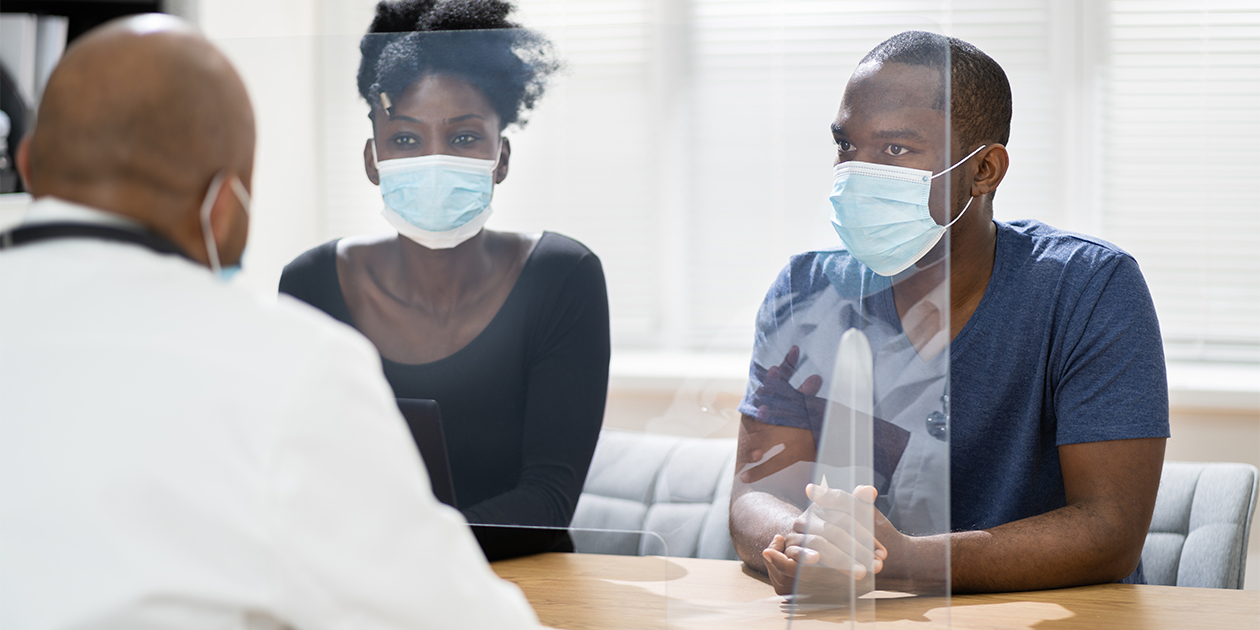The Georgia CEAL Team: Putting Communities at the Center of Public Health to Address COVID-19 Disparities
Communities of color in the United States have been particularly affected by the COVID-19 pandemic, with higher rates of illness, hospitalization, and death than White communities have had.1
Tabia Henry Akintobi, Ph.D., M.P.H., has seen this firsthand in Georgia, where she is a researcher and the associate dean of community engagement at Morehouse School of Medicine. The stark differences in impacts from the pandemic, Dr. Henry Akintobi says, have been “frustrating and painful to see.”
Dr. Henry Akintobi is the lead researcher of the Georgia Community Engagement Alliance Against COVID-19 Disparities (CEAL) team, one of 21 NIH-funded projects across the country working with communities disproportionately affected by COVID-19 to address mistrust and misinformation about the pandemic and vaccines.
The Impact of COVID-19
In Georgia, more than 18,000 people have died from the virus. Nationwide, Black people, Hispanics/Latinos, American Indians, and Alaska Natives are about twice as likely as White people to die from COVID-19. The vaccines that are currently available in the United States for COVID-19 are highly effective in preventing serious disease. However, people of color are much less likely than Whites to have been vaccinated.2
One reason for these lower vaccination rates is mistrust and hesitancy about the vaccine and vaccine research. This mistrust is deeply rooted in Black, Hispanic/Latino, American Indian, and Alaska Native communities, explains Dr. Henry Akintobi. This and other factors may contribute to these communities being underrepresented in vaccine trials and slow to be vaccinated. Dr. Henry Akintobi is hoping to change this.
Building upon years of experience working with the community, the Georgia CEAL team has engaged public health leaders on the history and ethics of biomedical research, including sharing information about the infamous Tuskegee experiment and other historical atrocities. It is important for health care workers to understand the past and current issues that affect communities of color, Dr. Henry Akintobi explains, in order to learn how people make informed choices about vaccines and participation in vaccine trials.

The Georgia CEAL team is sharing information about COVID-19 and vaccines with the public through partnerships with hundreds of community outreach workers and leaders. The team has also explained the importance of the vaccines and vaccine trials through television and radio programs and has held an online listening session where community members could voice concerns. Through these efforts, the team is reaching thousands of people to answer questions and share accurate information about COVID-19 and vaccines. Dr. Henry Akintobi is quick to point out that the CEAL team will not blame or shame anyone for their decision about the vaccine. But by giving accurate, science-based, and culturally-relevant information, the team is helping people understand their own views about getting vaccinated so that they can make informed choices.
Working With the Community
The goal of the team’s work is to encourage members of underserved communities to get vaccinated and to participate in vaccine and therapeutic trials. The most important aspects of the team’s work, Dr. Henry Akintobi says, are “community wisdom and co-creation.” This means that the activities of the Georgia CEAL team are developed with participation from community leaders, local service providers, local residents, and others.
This work is important, Dr. Henry Akintobi explains, because it builds trust within the communities hit hardest by COVID-19. Without this trust, and without involving the communities themselves in pandemic response and vaccine distribution and research, “we will continue to be ravaged by the pandemic,” she says.
Trusted community leaders can be particularly persuasive. One of the greatest successes of the Georgia CEAL team, Dr. Henry Akintobi explains, came after a public service announcement from Valerie Montgomery Rice, M.D., FACOG, the president and dean of Morehouse School of Medicine. In the 1-minute video, Dr. Rice, who is trusted in the community, urges viewers, “Do your part. Roll up your sleeve and get vaccinated.” Following release of the video, 9,000 people signed onto the waiting list to get a vaccine, Dr. Henry Akintobi says.
A Personal Interest
Leading the CEAL team has been deeply personal for Dr. Henry Akintobi. Her interest in public health emerged from growing up poor in Montreal, Canada, as the daughter of Jamaican immigrants. Recently, she learned that her father, who is in his late 60s, planned on not getting a COVID-19 vaccine. She was worried and frustrated, she says; although he was in good health, she knew he was at risk. When he changed his mind and signed up for a shot, she felt an enormous sense of relief. Getting accurate information from multiple sources had helped him make an important personal decision that would benefit his family and community.
Dr. Henry Akintobi hopes that the impact of this work will carry long into the future by demonstrating that communities must be at the center of any public health effort. “They are the ones who should be informing us about what works, what doesn’t, and how it can be sustained,” she says.
1 Centers for Disease Control and Prevention. (2021). Risk for COVID-19 Infection, Hospitalization, and Death by Race/Ethnicity. Retrieved March 17, 2021, from https://www.cdc.gov/coronavirus/2019-ncov/covid-data/investigations-discovery/hospitalization-death-by-race-ethnicity.html.
2 Centers for Disease Control and Prevention. (2021). Demographic Characteristics of People Receiving COVID-19 Vaccinations in the United States. Retrieved March 17, 2021, from https://covid.cdc.gov/covid-data-tracker/#vaccination-demographic.
Page updated July 16, 2021
















